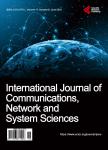Is Faster Necessarily Better? 3G Take-Up Rates and the Implications for Next Generation Services
Is Faster Necessarily Better? 3G Take-Up Rates and the Implications for Next Generation Services作者机构:NERA Economic Consulting San Francisco USA
出 版 物:《International Journal of Communications, Network and System Sciences》 (通讯、网络与系统学国际期刊(英文))
年 卷 期:2012年第5卷第8期
页 面:463-480页
学科分类:1002[医学-临床医学] 100214[医学-肿瘤学] 10[医学]
主 题:Spectrum Diffusion Broadband Linear Probability Models Qualitative Choice Analysis
摘 要:Most countries have allocated 3G spectrum and are in the process of allocating advanced wireless services and 4G spectrum, both of which promise subscribers significantly faster broadband speeds. Operators anticipate that subscribers will adopt these services swiftly thereby justifying the large investments. Yet, why is it the case that only two countries in the world have more 3G than 2G subscribers? This study examines the drivers behind 3G diffusion using linear probability models and qualitative choice (logit) analysis. Time series diffusion models show that diffusion patterns follow an s-curve pattern, favoring the Gompertz curve.



